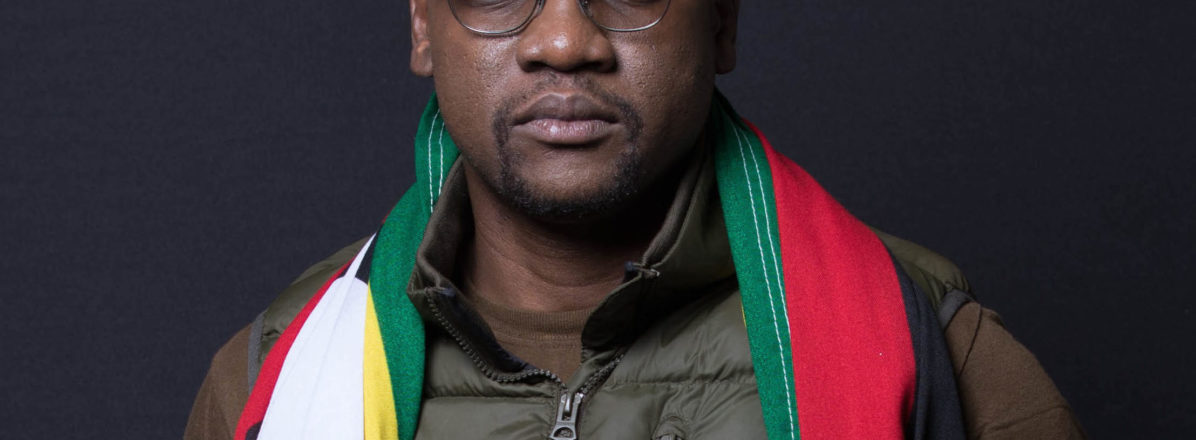A nation must think before it acts.
David and Goliath in Zimbabwe: How a Pastor Has Challenged Robert Mugabe
While Zimbabwean President Robert Mugabe was deriding President Trump as a “Giant, Gold Goliath” at the UN General Assembly last week, the 93 year-old dictator’s own suspected “David” was arrested back home in the capital city of Harare on charges of subversion.
Evan Mawarire, a Harare-based pastor less than half Mugabe’s age, was released Tuesday when police failed to bring him to court within 48 hours following his arrest, but he is due to stand trial at a later date on other preexisting charges. “Pastor Evan,” as he is known among friends and followers, unwittingly started a reform movement in April 2016 when he posted a YouTube video that quickly went viral across the cash-strapped nation. In it, Mawarire lamented his country’s ongoing economic woes and called for citizen action. Since then, the movement has catalyzed uncommonly large-scale protests and helped mobilize a more robust opposition ahead of the 2018 general elections. Mawarire himself has hinted at a presidential bid, further eliciting Mugabe’s scorn.
Mugabe himself has ruled Zimbabwe with an iron fist since the country’s independence in 1980. State security forces loyal to his ZANU-PF party have felt little restraint in employing violence against civilians, starting with the 1983 massacre of over 10,000 members of the Ndebele ethnic minority group and recurring sporadically—especially during close elections. Political opposition has tended to tread carefully, and citizens often remain silent on government abuses.
#ThisFlag, as Mawarire’s movement is known, defies this orthodoxy. It has drawn international attention, in part due to the pastor’s global connections. The U.S. Embassy in Harare issued a statement last week calling for “an end to arbitrary arrests and intimidation for political purposes” in Zimbabwe, and the British Embassy tweeted on Monday that it would be following the case closely throughout the week.
I spoke with Pastor Evan over the phone last November. In describing his country’s shifting status quo, he recalled, “You’d think about the corruption of government officials and so forth but never would speak of it, never would address it from the pulpit, or address it from the perspective of trying to rally people around something like that. . . . Zimbabwe’s not a place that you would speak openly about these things. You wouldn’t challenge the system openly about things like this because of the dangers involved on your life. The danger of pro-government people is quite real.” In a mere 18 months, emboldened Zimbabweans have followed Mawarire’s lead in turning this conventional system on its head.
Clergy-turned-activists can pose strong challenges to repressive governments, given the esteem that local congregants and global coreligionists hold for people of the cloth—and officials’ reticence to provoke these key groups. Though politically active clergy remain all-too-frequent targets of suppression by suspicious regimes anxious to shore up their public image, their revered status certainly makes governments think twice about whether and how to shut them down.
Religious leaders’ ability to harness media coverage adds particular pressure to even the most authoritarian systems, and likely emboldens activists who find themselves enmeshed in a sympathetic global community of fellow believers and retweeters. Mawarire learned of his impending arrest while preaching to a small congregation last Sunday and promptly began filming himself wrapping up the sermon, capturing his congregants’ concerned expressions and deliberately adding to the moment’s drama. Observers and supporters widely circulated the clip, as he certainly would have intended. On the other hand, Mawarire has gotten into trouble based in large part on his outspoken Facebook and Twitter posts, underscoring the uncertain advantage of his online platforms of choice.
Transnational networks of coreligionists tend to be overlooked as influential nonstate actors. But as religious adherence in the so-called “global south” continues to rise in the coming decades, figures like Mawarire—who has benefited from wide-ranging domestic and international support—will command ever more serious attention. Religiously-motivated actors certainly have a range of objectives, from inspirational to nefarious, but the key point is that their power in a shifting global order must not be taken for granted.
In Zimbabwe, Mugabe and ZANU-PF will likely continue to work through the courts to weaken the regime’s newfound rival ahead of 2018 elections. If unsuccessful, voters are likely to face coercive regime tactics at the polls. But even the biblical Goliath’s “sword and spear and javelin” were not sufficient for the Philistine champion. The young Mawarire, with his army of Twitter followers and extensive network of sympathizers, may be correct in perceiving that the time is ripe for change.


